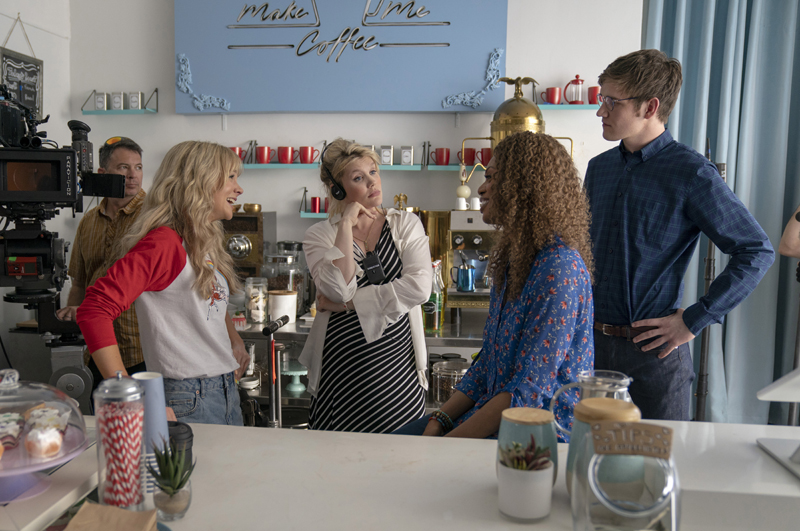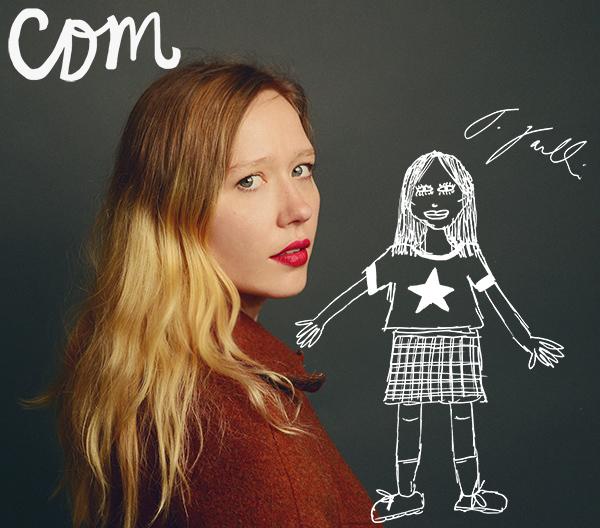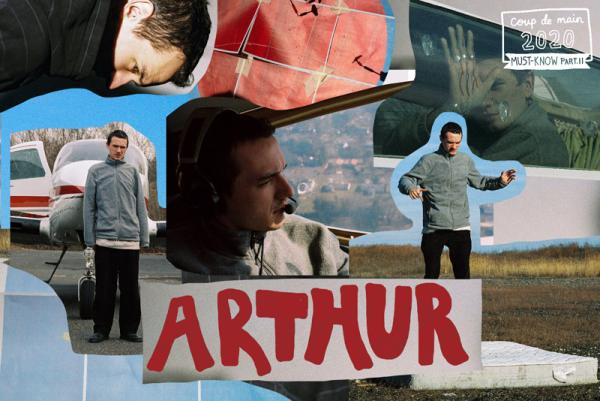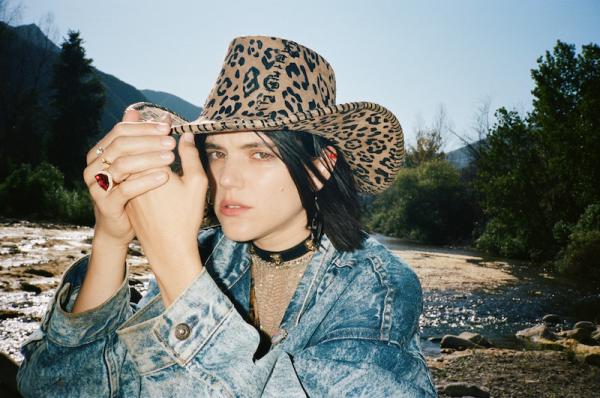"I really wanted to write a film about female revenge," declares Emerald Fennell of her audacious and thought-provoking directorial feature debut, 'Promising Young Woman' (the title an echo of the 'promising young man' misnomer that supporters of convicted rapist Brock Turner often utilised to describe him), that she also wrote and co-produced. "Recently, there have been a lot of movies about women taking matters into their own hands, and they tend to be super violent or super sexy, or very, very depressing. What I wanted to do is try to write a film about how an ordinary woman might take revenge in the real world, and that’s very rarely reaching for a gun. It’s weirder and more twisted than that."
[Please note that the New Zealand cinema rating for this film is R18 and the subject matter in this film deals with issues of sexual assault that may be disturbing and difficult for some viewers.]
'Promising Young Woman' follows Carey Mulligan as anti-heroine Cassie - a grieving med school dropout with a traumatic past. Vengeful and full of rage, Cassie attempts to dull her unrelenting pain by imposing a mission upon herself to teach predatory 'nice guys' an unforgettable lesson about consent. "She’s going out at night, she’s pretending to be drunk, she’s alone and she’s allowing herself to be rescued by a man," explains Mulligan. "She doesn’t ever advance a situation with men, she doesn’t give them any signals that she is trying to end up in any kind of sexual scenario with them. She waits until the moment when the man takes advantage of that, and then she immediately snaps out of it and reveals that she’s sober and teaches them a lesson. It’s the way she keeps herself together—it’s compulsive."
Forcing these men to recognise their cisgender male privilege, Cassie sledgehammers all delusions that considering yourself a 'good guy' (or at least better than your friends) is conscientiously equivalent to enthusiastic consent being granted consciously, freely, actively, and voluntarily. Fennell adds about Cassie's motivations: "What she does is so deeply ingrained in her, like any addiction, I think it’s a need that she addresses. She does the thing she needs to do to make herself feel better, but it’s much more dangerous for her than it is for the people that she’s looking to teach lessons to."

Subverting classic romantic comedy and revenge thriller tropes to devastating effect, from the casting of quintessential 'softbois' (beloved boyfriend of the internet Bo Burnham, Adam Brody of 'The O.C.', Max Greenfield of 'New Girl', and baby-faced Chris Lowell of 'Veronica Mars' and 'GLOW'), to Cassie's ultra-feminine wardrobe ("Women being interested in clothes is often perceived as a silly thing, but it’s the easiest, quickest way for women to weaponise their femininity. Everything in Cassie’s day-life had to project, 'I’m fine.' We made her look glorious and put her in lots of pastels and ginghams and put ribbons in her hair. The instinct that people have to say that a woman is depressed because she’s wearing a t-shirt and sad trousers, it’s not the case. They often look their best when they’re having a bad time," says Fennell), the audience is strung along as Fennell damns society's silent collusions and the empathy gap between men and women. When a male character complains that "it’s every guy’s worst nightmare, getting accused like that," Cassie chillingly replies, "Can you guess what every woman’s worst nightmare is?" - recalling Margaret Atwood famously saying during a 1982 university lecture: "'Why do men feel threatened by women?' I asked a male friend of mine... 'men are bigger, most of the time, they can run faster, strangle better, and they have on the average a lot more money and power.' 'They're afraid women will laugh at them,' he said... I asked some women students in a quickie poetry seminar I was giving, 'Why do women feel threatened by men?' 'They're afraid of being killed.'"
Fennell (best known as Camilla Parker Bowles in 'The Crown' and for her work as the showrunner of 'Killing Eve' Season 2) also gives the third degree to a distressing lack of empathy between fellow women, and one of her film's most harrowing scenes plays out between Connie Britton's Dean Walker and Cassie, when the former gaslights the latter. It's normal to see men in positions of power as the enemy in these situations on-screen (Kitty Green's 2019 film 'The Assistant' depicts this perfectly), so it's absolutely heartbreaking to hear a woman who ought to be an ally, instead further perpetuate social conventions of victim-blaming ("None of us want to admit when we've made ourselves vulnerable, when we have made a bad choice, and those choices, those mistakes, can be so damaging and really regrettable," says Walker). Holding a mirror up to our culture of complicity, Fennell reflects: "If you’re writing a film about how we have all been complicit in a toxic sexist abusive culture, the first thing you have to do is look at yourself and how you’ve been part of that. What was important to me about this movie is that there’s nothing in it that isn’t extremely commonplace. I wasn’t interested in making a film that examined terrible crimes and terrible acts of violence and the people that commit those things. I’m much more interested in our culture and thinking, how are we all part of this awful knot that we need to unpick?"
And in conversation over the phone last June (before the release of 'Promising Young Woman' was further delayed due to the pandemic), Fennell observed, "Sometimes it feels like things might not have changed, but I do think that when it comes to seduction, we're inevitably in hot water. Things are complicated and difficult because seduction up to a point, even if it's just making a new friend as well as sexual seduction, is inevitably kind of concealing things in order to get the things you want. At what point is our behaviour malevolent when it comes to how far did the ends justify the means?" She concludes, "But I do think that things will change. I hope that being able to make things like this means that we all at least talk about it more and that it will change."
'Promising Young Woman' is not a perfect film, but much like the messy and non-linear processing of trauma itself, the empathy it demands and the whiplash of questions it presents are a bitter yet necessary pill to swallow. Cassie's rage is symptomatic to any woman who has ever felt powerless, and will, I hope, be recognised not just for her dogged lampooning of the Nice Guy™, but also the important (and long overdue) conversations that her story is sure to spark - an essential step forward in order to facilitate change for the future.

CDM: I watched a screener of 'Promising Young Woman' back in April, and can't stop thinking about it. Firstly though, thank you for making Carey Mulligan and Bo Burnham dance to Paris Hilton's 'Stars Are Blind' in a pharmacy.
EMERALD: <laughs> You are welcome!
CDM: Revenge as a motivator in 'Promising Young Woman' is shown in such a visceral way, and in your short film 'Careful How You Go' you also explored how women can be frightening or malevolent. Why is female rage something you're so interested in giving a voice to onscreen?
EMERALD: Because we rarely see it in the peculiarly/particularly female way. I didn't think about particularly the revenge genre, but lots of things in general. I often feel like I see women behaving in ways that I just don't know any women would behave, and so I wanted to make a revenge movie that was just as pleasurable and gripping as the genre is and also that still contained every single trope of the genre, but in a world where we were dealing with a real woman and her real feelings and how she might actually behave. All the stuff that I grew up with, like Patricia Highsmith, Daphne DuMaurier, and Shirley Jackson; sinister women. There are women in all of our lives that we are frightened of, or we're frightened of in ways that we're really not frightened of men. There are old, old women who can ruin people's lives just sitting quietly in a corner with one sentence. I really find it such a rich theme. Of course, there are other people doing it too and have been for a long time, but it still feels like something that hasn't been kind of interrogated that much.
CDM: Is rage or grief a more powerful motivator?
EMERALD: That's a really difficult question. I think grief. The truth of it is that for Cassie, the rage comes from the grief. Everything comes from the grief. And everything comes from the love. When me and Carey were talking in the beginning about it and about the relentlessness and the danger she puts herself in... because of the kind of filmmaker I am and want to be, I didn't want to show what happens when things go wrong in her quest, and inevitably they have in the past. You never put yourself in danger like that for yourself, in general. It really made sense to me as her kind of seeking justice for somebody that she loves.
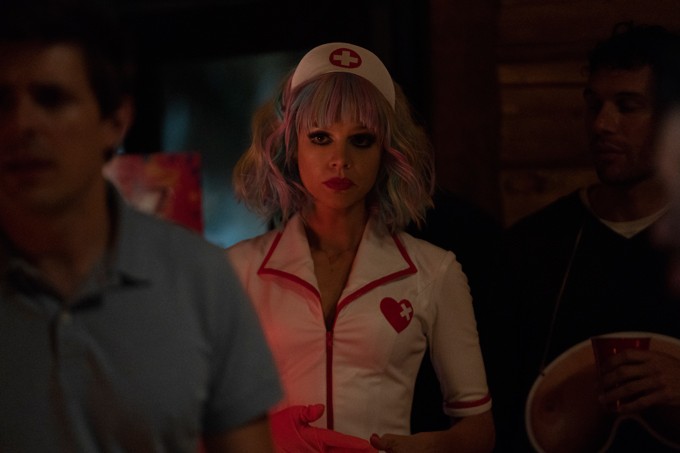
CDM: In 'Promising Young Woman', you also scrutinise the lack of empathy between fellow women, and the gaslighting scene between Dean Walker and Cassie ("So she shouldn't have been drunk?") is particularly troubling. Even for women who may consider themselves feminists, is it important to recognise these microaggressions and try and reject them in our daily lives? Whether it's judging a female popstar harshly, not having empathy for a fellow woman in the workplace who you don't personally get along with, or assuming that "it's crying wolf" as Alison Brie's Madison says in the film?
EMERALD: What I wanted to present was a world that felt real and true to all of us. I think the truth is that people do not think of themselves as bad and certainly don't think of themselves as evil. They often have not interrogated the way that they think very deeply. And that's the thing that is quite troubling, that really it's often in the aftermath of events like this you often find that allegiances just kind of stick, and that crosses gender lines completely. And that's what I wanted to do, was just to give everyone the kind of argument that I think a lot of us have heard before, and an argument that seems on the face of it a 'logical' one. I think that's the trouble: that the kind of seeming logic of it is a trap for the people who believe it, and for the victim. So, for me, when it came to writing the film and making this film, the first thing I had to do was drill down to myself and look in the mirror and look at the past at moments where I might not have behaved or I might not have been as supportive as I might have been. Because it's not fair, I don't think, to point fingers at a culture that I certainly grew up in and at some point have been less useful in, or that I might have been. Working with the likes of Phoebe Waller-Bridge, and all sorts of amazing and multi-talented women, the one thing that I do think is that every single character needs to believe that they're right and they're good. And so that's what makes it so difficult. People like Madison and people like Dean Walker only understand that what we're saying is nonsense when it's just shown to them. When it becomes personal, or when suddenly they see it... and that was always the thing for Cassie, it was just redemption. You can forgive this if there's an apology or sort of punishment, but I think there are lots of people in all of our lives who say and think these things still.
CDM: One of the guys that Cassie targets says to her: "Why do you guys have to ruin everything?!" That men believe women are their prerogative is another important issue you highlight in this film, but as many men identify as a 'nice guy', this isn't something they are likely to admit about themselves. The guy who tries to wake Cassie up when she's pretending to be asleep is a classic example of a 'nice guy' thinking 'but if she's conscious then it's okay' and therefore excusing himself. Why is it hard for people to ignore faults in themselves when they may be able to acknowledge the same faults in other people around them?
EMERALD: God, I wish I knew. I mean, I think none of us really know who we are. Whenever I'm writing, or when I'm making anything, even [in the] action [genre], I try to remember how little we know about ourselves. And honestly, there are two things: that moment at the beginning with Adam Brody's character, when he's kissing down her body and he's saying those things, he really believes them because he thinks he saved her from his friends who are horrible. He thinks because she's vaguely able to laugh at a couple of jokes that they have a rapport. And he's just delusional because he's thinking with his pants. So when it comes to that, "Why do you guys have to ruin everything?!", there's a kind of childish, childish petulance, and defensiveness that I think is not peculiar to men. It's all of us when we're confronted in behaviours that when we're caught out, we're all like children when we're caught out doing something that we know in our heart is naughty or very close but we thought we were getting away with. So I kind of wanted to see how dangerous that kickback is. That little sort of petulant and childish pushing someone down because you feel embarrassed. That's such an interesting thing.

CDM: Pop music is regarded by society as something that's very fluffy and trivial, but in 'Promising Young Woman' you utilise it in the soundtrack to add weight to scenes with such thoughtfulness. Women musicians often tell me that they feel obliged to present themselves in such a way so as to not appear vain, in order to be taken half as seriously as their male counterparts and not feel dismissed. Have you ever felt any similar pressures working in the film and TV industries?
EMERALD: I've been really lucky, I think, in all sorts of ways. My first main job was working on a show, 'Call The Midwife', which was just working with a ton of incredible women. And since then, I've been lucky enough to work with a lot of female-led films and production companies. So I have been lucky in that regard. But having said that, I think all of us feel like we have to work twice as hard. And that is doubly tricky - infinitely more, if you're a woman of colour or a trans woman. And the truth of it is, is that you have more to prove. I think you are interrogated more. It's interesting... I think female filmmakers maybe are interrogated more when it comes to the technical side of things. The best thing that I decided making this movie - because we had 23 days, it was super short, it was a low budget and we had a lot of stuff to do - and the thing that I agree with [is the opposite of] advice to women and people in general that is often: 'Fake it 'til you make it.' For me, I was like, I'm absolutely going to just do the opposite. I know exactly what I want from this but I don't know exactly what to do, and the worst thing I could do out of just insecurity, which a lot of people do, is pretending to know everything. So if somebody comes and ask me about a very particular, deep, like crazy sort of technical jargon detail, I'm not going to say, "Yes, exactly." I'm going to say, "I'm so sorry, what is that? What are you talking about?" And that was the thing: to have the confidence that you know enough that when you don't know something you can say it. Or if somebody says to you, 'Hey, I think it might be interesting to do it this way,' that you don't feel so defensive that you shut them down because you work very hard and you have your ideas that you're so protective of and you don't want your own stuff to get in the way of letting everyone collaborate.
CDM: A male character in the film says to Cassie in defence of him being complicit: "I didn't even do anything." What responsibility do you think bystanders have to resist mob mentality and actively stop bad things from happening?
EMERALD: I think we've seen it now. And the protests that are happening all over the world. Increasingly, the conversation is not just about perpetrators - it's also about people who stay silent or aid in Baptist kind of behaviour. And so, when it comes to this film: absolutely. All that Cassie is asking for is an apology. From anyone. From everyone. All she wants is somebody to see it the way she sees it. It's literally all she's been looking for, is for one person not to say, 'I didn't do anything,' and not to say, 'It wasn't my fault.' Or, 'Why did you have to ruin everything?' She wants one person to say: 'This is so wrong and I can't believe I did this. And I can't believe I haven't done anything about it and already apologised. I'm so sorry.' It's sort of spoilery, but that's why when she does meet somebody who does apologise and has been thinking about it, she's just enormously grateful and she does kind of offer forgiveness. The thing that I really stress all the time about this movie is that I don't have any answers - it's so complicated and it's so difficult and it's so hard and it's so personal to every person, but what I do know is that we should all be talking about it more, and we should all be owning up to our own stuff more. And that's the only way: to try to set the guilt and the shame aside as much as we can. And certainly, when it comes to this stuff, in the last few years, women have come out and explained their feelings about things and been shot down. It's very rare that people say: "I did this. I did it. And I'm so, so sorry, and it was unforgivable." You almost never hear that. And until we start hearing that, we're not going to be able to move forward.
This interview has been edited and condensed for clarity.
'Promising Young Woman' is out in New Zealand cinemas now.
Watch a trailer below...


